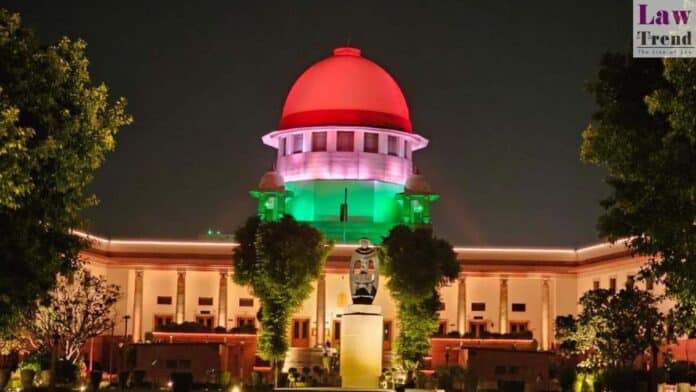The Supreme Court on Friday stayed an order of the Rajasthan High Court which had quashed three separate orders of the state government permitting interception of mobile phone calls of some people over suspicion of corruption.
A bench of Justices Vikram Nath and A Amanullah also issued notices, including to the petitioner on whose plea the high court had passed the order on July 4 this year, seeking their responses on the petition filed by the state.
The bench was hearing a plea filed by the Rajasthan government and others challenging the high court verdict.
Senior advocate Manish Singhvi appeared for the state government.
The plea said the high court had quashed the interception orders dated October 28, 2020, December 28, 2020 and March 17, 2021 passed by the Secretary (Home), Government of Rajasthan, in exercise of power under section 5(2) of the Indian Telegraph Act, 1885.
Section 5 of the Act deals with power of a government to take possession of licenced telegraphs and to order interception of messages.
“Whether telephone used by a public servant, who is engaging in rampant corruption, and against whom there is sufficient material available with the investigation agency, can be intercepted under section 5(2) of the Indian Telegraph Act?” is one of the questions of law raised by the state in its plea.
It said the high court had quashed the three interception orders whereas two of them did not pertain to the petitioner who had filed the plea there.
The petition said a perusal of the Indian Telegraph Act, 1885 and the Indian Telegraph Amendment Rules, 2007 revealed that the orders of interception were passed by the competent person.
The high court had noted in its order that on the basis of information gathered on interception of mobile phone calls, an FIR was lodged in April 2021 under the provisions of the Prevention of Corruption Act and and the Indian Penal Code. After investigation, a charge sheet was also filed, it had noted.
“In view of the discussions made above, it would be evident that the impugned orders suffer from manifest arbitrariness and if allowed to stand would amount to permit violation of the fundamental rights of the citizens and the law laid down by the Supreme Court. Therefore, all the three interception orders challenged herein and referred above stand hereby quashed,” the high court had said in its order.
Also Read
It had also directed the authorities to destroy the intercepted messages or recordings and their copies.
In its plea filed before the apex court, the state government has said the setting aside of interception orders and destruction of intercepted messages or recording may lead to dilution of the prosecution’s case.
“Moreover, the impugned order is also relied by various other accused persons including public servants to seek quashment of the intercepted messages qua corruption cases. It is, therefore, imperative that during the pendency of the present Special Leave Petition the impugned order is stayed,” it said while seeking interim relief.




